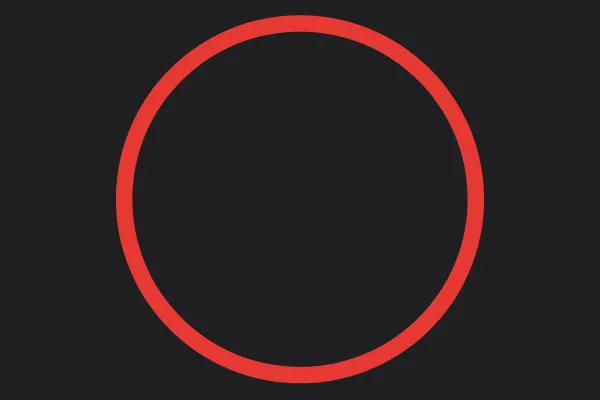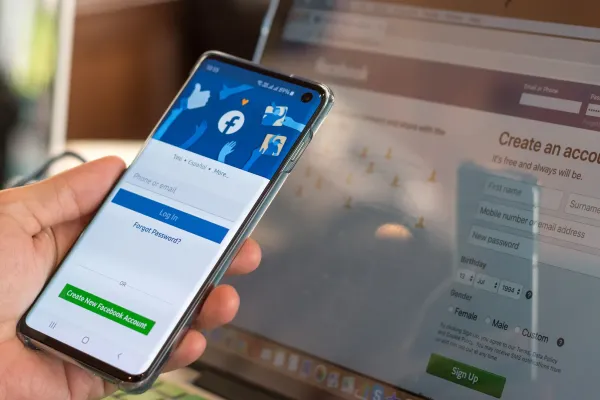How do you create native Facebook content that drives real business results? Why should we stop debating whether it makes sense to be on Snapchat? How do you best implement testing and optimisation in your organisation?
We met up with Eric Fulwiler Executive Director at VaynerMedia London to get some answers. He was a speaker at Native Advertising DAYS 2016 and you can sign up for notifications about next years’ conference here.
Below are highlights from the interview which have been slightly edited for clarity.
"Mobile video is everything"
"To build native Facebook content to drive business results is what we're all trying to figure out. I think the biggest piece for us at least is understanding how people's attention is shifting. Oftentimes we talk about content without actually talking about the context around that content; meaning how people are spending their time on Facebook, the fact that they're mobile, the fact that people are drawn to consuming video.
What's around the content that we're trying to present to people? Understanding the context and how people's attention plays out on these platforms is a big piece of the answer.
To bring it down a level and give a little more tactical advice; mobile video is everything. At VaynerMedia we are trying to be the best agency for video content on the mobile device going into 2017 and 2018. We're obsessed with that. So thinking about video I think will help drive business results.
RELATED: Google On How To Succeed With Mobile Native
Another thing that is super important is to build a system whether it's a team or a process to be able to test and optimize after you put content live. Historically many marketers think about creating one piece of content and just pushing it out there and seeing what happens. We think that there's opportunity now not just to tweak your content based on the data that you see coming back to you, but also to try to come up with different pieces of content segmented to your audiences on Facebook which will make it more relevant."
Stop questioning Snapchat
"Sometimes we treat social media and even digital media differently [from traditional media]. I don't think that's right. There's always these conversations about this new app, that new platform and whether or not [marketers] should be there because what happens if it goes away in two years? Or is Snapchat actually going to go mainstream?
People aren't debating whether or not a hit TV show is going to be here in two seasons. They buy advertising there because people's attention is there
But the fact of the matter is: Once people's attention is there you should be marketing there in the same way that you would with a hit TV show. People aren't sitting around debating whether or not a hit TV show is going to be here in two seasons. They buy advertising there because people's attention is there. So I'm not sure the conversation [about push vs pull advertising] should really be all that different from Facebook. I think good advertising, not just native advertising, is content that gives value whether that's information or entertainment or just quality."
RELATED: Here's the 2024 Native Advertising Trends You Need to Know
Fake news is a challenge for advertising
"Right now the marketplace is saying that most advertisers feel pretty comfortable about the level of safeguards that Facebook has in place for that and they're voting with their dollars if you will. That can change. There's a lot of conversation right now about fake news and everything that happened in the US around the election. Some brands have a bigger appetite for that kind of risk or exposure and some don't, so it completely depends on the brand and the marketer [whether they want to be there].
Publishers get Facebook -- but not always how fast it's changing
I don't think that publishers misunderstand the use of Facebook. Facebook as a marketing channel is becoming more mainstream, more people are using it, best practices are being developed. I think the bigger thing that might be contributing to some type of misunderstanding is just how quickly the platform and the best practices are changing.
TV as an advertising ecosystem and environment both economic and creative. TV you know that took 50-60 years in the making so it's a lot more established and rigid. Facebook as a medium is changing so much quicker. How we use Facebook today is very different from how we used it two years ago. Things like messenger, and live, marketplace and everything that they're doing to iterate the product. We think a lot of people aren't really taking advantage of the full potential."
Best practices for advertising on Facebook
"Best practices for advertising on Facebook; mobile video right now. Creating video that is going to play well in a mobile environment that's the biggest advice that I think I can give anybody.
Another advice is really understanding the potential of Power Editor as an ad tech platform and not just doing a superficial kind of broad-based media-buying on it. Actually using the wealth of data that Facebook has on your target audience to be able to segment by audience, by location, by gender and drill very deep down and then creating content that's relevant to those audiences. I think that's a big potential.
Oftentimes we ignore the importance of being a practitioner on the social media platforms
That speaks to something that's super important to us, which is the integration of creative and media. So thinking about creative based on the media plan and thinking about a media plan based on what you want to do for creative and then making sure that the testing and optimization loop is really in place. So that what you see in your media reporting informs what you're doing with your content and vice versa.
Something else that I think is super important but that often times we ignore is being a practitioner; spending time on the platform, being intellectually curious about how people are using it; why they're using Facebook live? Why they're not using Facebook live? All those things contribute to being successful as a marketer on the platform."
RELATED: A Quick Guide to Sponsored Posts on Facebook
3 keys to getting your content noticed on Facebook
"First one is: Design for thumb stopping power. We throw around the term thumb stopping content a lot internally. It really just means that if you think about anybody using Facebook they're on their phone -- it's a mobile platform, we can put that conversation to bed -- they are literally scrolling through the 1500 pieces of content that any user could potentially see when they log into Facebook.
So there's a ton of content on there and they're scrolling really fast. How do you make your content stand out enough that people are going to stop their thumb and watch your video or click on your link or whatever action you actually want them to take? Only by designing for thumb stopping power.
Make sure you're taking an objective approach even for your creative, which historically has been a very subjective discipline
Mobile video is the second one. I'm beating a dead horse here but video is the game right now on Facebook especially. We think everything else is going to follow.
The last one is building a system for testing and optimizing. Make sure that even for your creative, which historically has been a very subjective discipline, you are taking an objective approach meaning you're using math and the data the platform provides you to inform what you're doing creatively."
RELATED: Clicks and Followers Are Just Vanity Metrics
How to implement testing and optimization in your organization
"Testing and optimizing is, first of all, a management thing. I think somebody has to be accountable for it. You need to decide that it's something that is important to your organization. I think that it should be but you have to make that decision; actually accept that enough to give it to somebody to be responsible for implementing it.
You need the right person to do it. Talent is everything, you can have a strategy and priorities and I can tell you what I think is important, but if you don't have the right person to be able to do it, it's not going to matter in the end.
More tactically we check in on our spends three times a day so getting into that level of detail regarding how you set up your reporting I think is important. And then sometimes as simple as; we have our media analyst sit next to our copywriters and our art directors, so they're not just talking day-to-day but they build a working relationship together. So a lot of it is really just how you set up your team."



